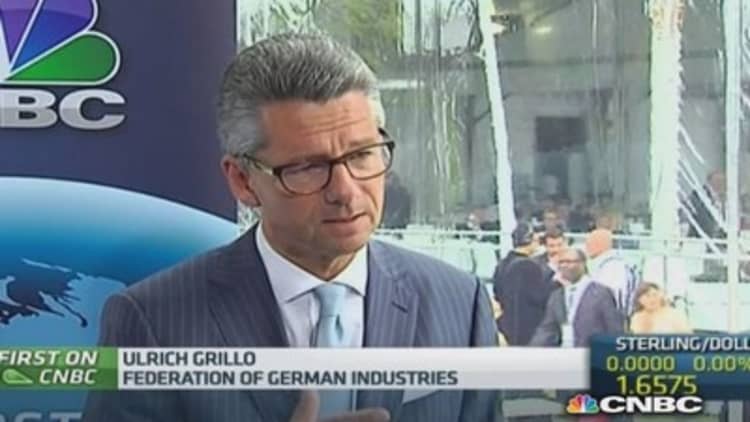France's new economy minister, former investment banker Emmanuel Macron, has taken a shot at the country's short working week, suggesting regulation should be eased and firms given the freedom to up staff hours.
In an interview with French magazine Le Point, Macron suggested companies should have more autonomy and the 35-hour working week could be replaced if unions and employees were in favor.
Read MoreTrichet: French govt now has 'clear line and course'
Such measures would help France "find a way out of the trap that sees the accumulation of workers' rights become an obstacle for those who are jobless," he told Le Point.
The country's 35-hour working week was introduced by the socialist government in 2000 and has been a source of criticism from both the international community and corporate world.
Read MoreFrance's new economy minister ex-Rothschild banker
Former head of the World Trade Organization, Pascal Lamy, told CNBC that trade unions could be persuaded to drop their commitment to the short week, if industry committed to higher investment in France in return.
"I am convinced there is room for a negotiation between industry and trade unions, notably on tough issues like the 35 hours and whether or not within a company or an industrial branch, deviations to these 35 hours, which is the legal time, can take place," the French businessman and political adviser told CNBC on Thursday.
He added that not all French trade unions were intransigently opposed to pro-business reforms. "We have a variety of trade unions. Some French trade unions are more modern than others," he said.
However, Laurent Berger, the head of France's CFDT trade union, said Macron had "made a mistake" in suggesting scrapping the 35 hour week.
"It's out of the question. The subject is closed," he told French digital channel i>Tele.

Alain Roumilhac, president of global recruitment agency Manpower in France, said he hoped former Rothschild banker Macron was the "right man for the job", and agreed the country's corporations needed more freedom.
"This country is too centralized, and we have to stop giving decisions and rules for all companies, one size doesn't fit all," he told CNBC. "We don't see positive take-off in the economy, so this is why it is so important to take very urgent and tough decisions."
French President Francois Hollande's economic policies have come under increased pressure after the unemployment rate in France hit a new record high in July. Official statistics from the French labor ministry, published Wednesday, showed there were 3.424 million people out of work last month, an increase of around 26,000.
"Labor market reforms are imperative to reforming France's medium to long-term economic outlook. But these measures will be extremely controversial and the risk is that they damage consumer confidence at a time when it is already very fragile, and hence dent economic activity in the near term," senior European economist at Capital Economics, Jennifer McKeown, told CNBC.
Business leaders have also voiced their support for looser labor market regulations in the country. The Chairman of Siemens France, Christophe de Maistre, said the French economy was suffering from overly tight working regulation.
"The economy in France is too much bound in old rigid regulation – we have to make it easier to make investments," he told CNBC.
—By CNBC's Jenny Cosgrave with Katy Barnato.


